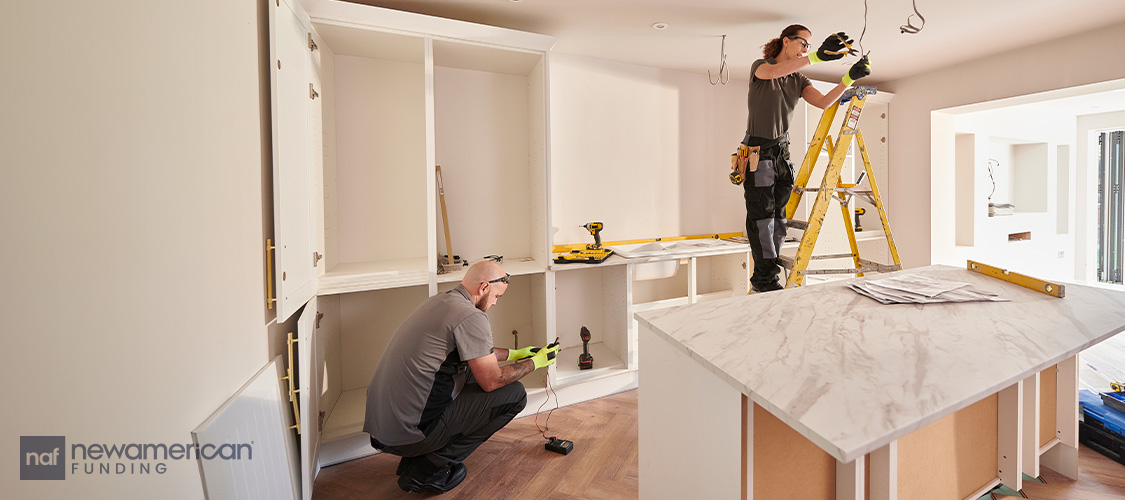Homeowners
Selling Your Home? What Homeowners Should Understand About Capital Gains Taxes
December 30, 2024
If you’re considering selling your home, you may be looking forward to a sizeable profit.
However, you may not want to spend it just yet. That’s because Uncle Sam could be entitled to some of that money. Depending on how much money you end up with from selling your home, it could be subject to capital gains taxes.
That’s why it’s important to understand how capital gains taxes could affect your proceeds and the steps you can take to minimize what you owe.
What are capital gains taxes?
Capital gains taxes are taxes on the profits you receive when selling an asset, such as your home.
If you sell your home for more than you paid for it, this is considered a capital gain. But don’t panic just yet. You may not owe the Internal Revenue Service (IRS) capital gains taxes.
How long you have owned your home, your taxable income, and your tax filing status will determine what, if anything, you owe.
How capital gains taxes apply to home sales
The IRS allows homeowners to exclude up to $250,000 in capital gains for single tax filers. Married couples filing jointly can double that amount up to $500,000.
Any profit beyond these proceeds will likely incur the taxes. The taxes range from nothing to 15% or 20%, depending on your taxable income.
For example, if you are single and earn less than $47,025, you wouldn’t owe capital gains taxes for money received in 2024. If your income is between $47,026 but less than $518,900, your capital gains tax rate is 15%.
And if you’re bringing in more than $518,900, you would pay a $20% capital gains tax.
Married couples filing jointly wouldn’t need to pay the taxes if they made $94,500 or less. They would pay 15% on up to $583,750 and 20% on $583,751 or more.
The income limits increase in 2025.
But there’s more to it than that.
“It’s imperative that we also account for a tax filer’s MAGI, or modified adjusted gross income, to determine if the extra 3.8% NIIT, or net investment income tax, will apply,” said Vance Barse. He is the founder of Your Dedicated Fiduciary, a fiduciary wealth management firm that operates offices in Dallas and San Diego.
The NIIT applies if the total of your MAGI exceeds $200,000 for single filers and $250,000 for married filing jointly filers.
How to qualify for an exclusion of capital gains taxes on a home sale

To qualify for the capital gains tax exclusion, you must meet the following requirements:
- The home is your principal residence
- You have owned the home for a minimum of two years
- You have lived in the house for two of the last five years prior to selling the home
- You haven’t claimed a home sale capital gains exclusion on another home during the two years prior to selling the home
It’s important to note that the two-year window of living in the home doesn’t have to be consecutive, Barse said.
For example, you could buy a home and live in it for a year. The next year you could go on an around-the-world trip and rent out the property. If you lived in it for another full year after you returned from the trip, you would receive the exclusion when selling the home in the fourth year.
“One caveat is both spouses need to have been in that house two of the last five years,” Barse said.
However, there may be exceptions for active members of the military.
Also, if you shared the home with your spouse prior to their death, you may be able to increase your inclusion from $250,000 to $500,000 provided:
- You sell the home within two years of your spouse’s death
- You haven’t remarried at the time of the sale
- You or your spouse did not claim the exclusion on another home within two years of the current house sale
- You meet the two-year ownership and residence requirements.
How to avoid or reduce the capital gains tax on a home sale

The best way to avoid capital gains tax on a home sale is to meet the requirements for the exclusion.
Another way is to make and document any home improvements that you have made to the home. These expenses add to how much you paid for the home, which could offset any profits.
“If there's a $500,000 house that you purchase and you put $50,000 worth of improvements into the house, your basis is now $550,000,” Barse said. “If you sell that house five years later as a married filing jointly couple for a million dollars, you're not going to owe any capital gains tax. The net gain would be $450,000 assuming there are no real estate costs.”
Capital gains taxes are not inevitable. If you’re concerned about capital gains taxes when selling your home, talk with an accountant or financial planner to determine what your tax liability could be.






 Smart Moves Start Here.
Smart Moves Start Here.